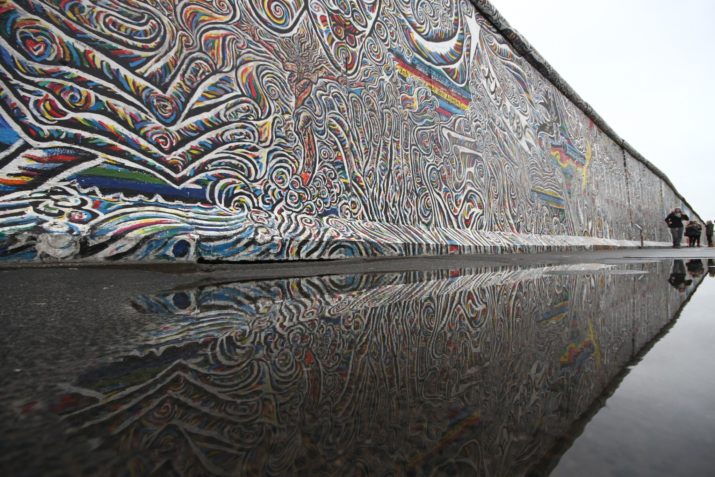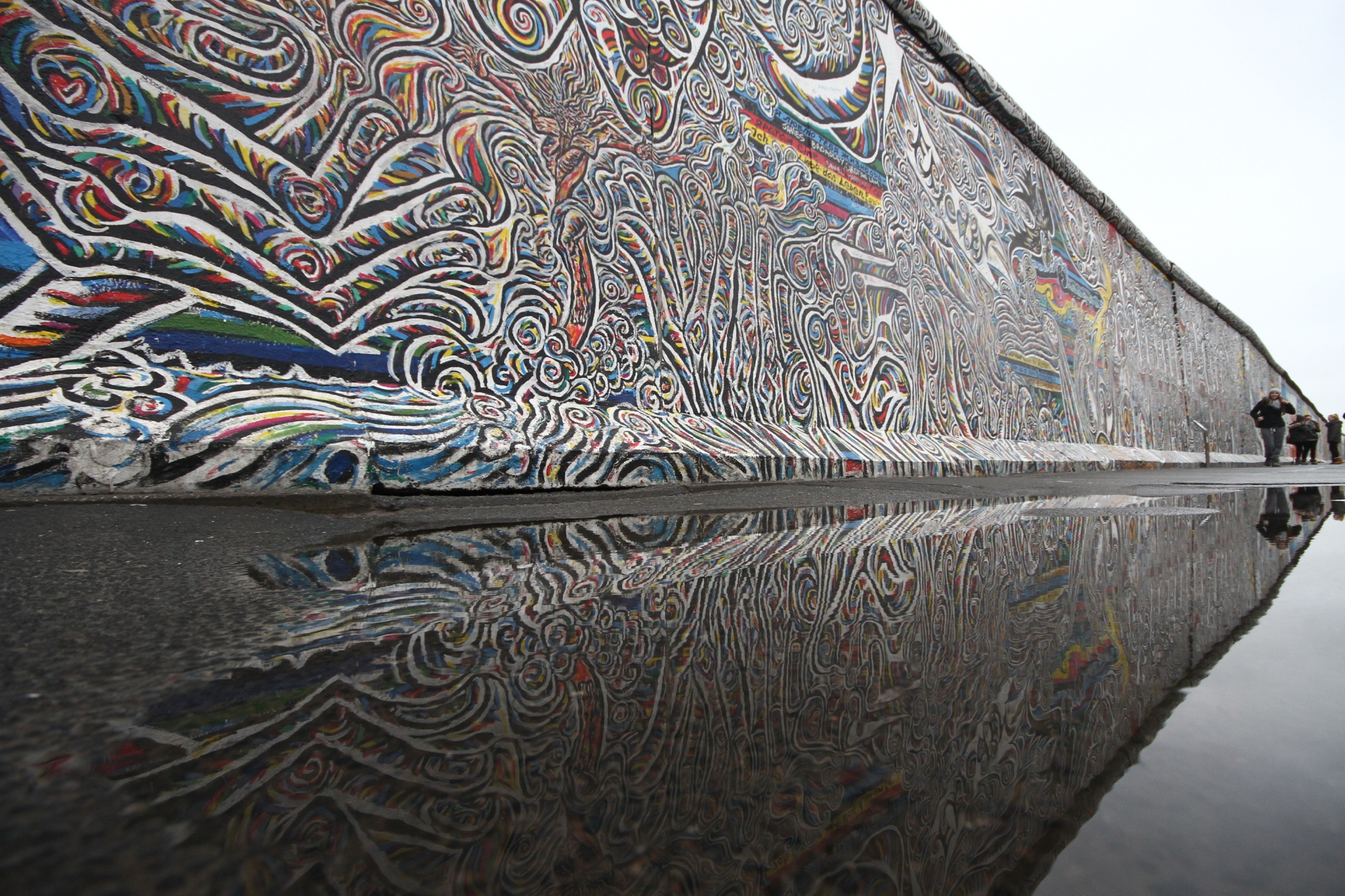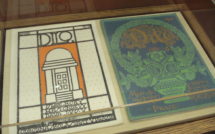
This is part of our feature on Poets and Power: Language of Resilience from Central and Eastern Europe
Description:
The geographic and linguistic scope of Central Europe is a fluid space that exists and is redefined in relation to what is considered East or West. The contested construct of Central Europe, the violence of the two world wars, and the turbulent political environment in the region throughout the twentieth century has produced a distinct body of literature that expresses both cultural specificity and a more universal tension between unease and optimism brought about by a constant state of flux. A historical contextualization of Central Europe in the twentieth century will foreground discussions of literary texts from former Czechoslovakia and Yugoslavia, Germany, Poland, and Hungary. The course will focus on two temporal periods: the interwar era through World War One (1919-1945), and the 1960s through the fall of the Berlin Wall in 1989. The majority of readings will be of prose (in the form of novels and short stories), though some essays, reviews, and selected poetry will also be assigned and discussed in class.
Books:
- Jerzy Andrzejewski. Ashes and Diamonds. Trans. D. J. Welsh. Evanston, IL: Northwestern University Press, 1996.
- Alfred Döblin. Berlin Alexanderplatz. Trans. Eugene Jolas. New York: Continuum, 2003.
- Bohumil Hrabal. Harlequin’s Millions. Trans. Stacey Knecht. New York: Archipelago, 2014.
- Zofia Nalkowska. Medallions. Trans. Diana Kuprel. Evanston, IL: Northwestern University Press, 2000.
- Magda Szabó. The Door. Trans. Len Rix. New York: New York Review of Books, 2015.
- Dubravka Ugrešić. The Museum of Unconditional Surrender. Trans. Celia Hawkesworth. New York: New Directions, 2002.
Week 1
Wednesday, 1.18
- Introductions & Course Overview
- Close Reading: “In the Electric Tram.” In Berlin Stories. By Robert Walser. Trans. Susan Bernofsky. New York: New York Review Books, 2012.
Friday, 1.20
- No class session—Attendance at film screening on February 8 required in lieu of this meeting
Week 2
Monday, 1.23
- Timothy Garton Ash. “Does Central Europe Exist?” In The New York Review of Books. Oct. 9, 1986. And “The Puzzle of Central Europe.” In The New York Review of Books. March 18, 1999. And “Is Europe Disintegrating?” In The New York Review of Books. Jan. 19, 2017
- Milan Kundera. “The Tragedy of Central Europe.” In The New York Review of Books. 26, 1984.
Wednesday, 1.25
- Stefan Zweig; “Light and Shadow over Europe.” In The World of Yesterday. Trans. Anthea Bell. Lincoln, University of Nebraska Press: 2013
- Danilo Kiš; “A Man with no Country.” In Balkan Blues: Writing Out of Yugoslavia. Ed. Joanna Labon. Trans. Christina Pribićević-‐Zorić. Evanston, IL: Northwestern University Press
Friday, 1.27
- Alfred Döblin; Berlin Alexanderplatz. Trans. Eugene Jolas. London: Bloomsbury Publishing,
- First Book: pg 1-‐47
Week 3
Monday, 1.30
- Döblin; Berlin Alexanderplatz.
- Second Book: 79-130
Wednesday, 2.1
- Döblin; Berlin Alexanderplatz.
- Fifth Book: pgs. 215-257; Sixth Book: pgs. 349-361, 413-414
Friday, 2.3
- Döblin; Berlin Alexanderplatz.
- Seventh Book: pgs. 444-492
Week 4
Monday, 2.6
- Döblin; Berlin Alexanderplatz.
- Eighth Book: pgs. 514-537, 570-572; Ninth Book, pgs. 598-635
Wednesday, 2.8
- Bohumil Hrabal. “The Death of Mr. Baltisberger,” In The Death of Mr. Baltisberger. Trans. Michael Henry Heim. Evanston, IL: Northwestern University Press, 2010.
Friday, 2.10
- James Wood. “Bohumil Hrabal.” In The London Review of Books. January 4, 2001. [available on Canvas]
- Theodor Adorno. “Essay as Form.” In The New German Critique. Spring-‐Summer 1984. [available on Canvas]
- In Class Discussion: The Essay as Form
Week 5
Monday, 2.13
- Ilona Lacková. A False Dawn. Trans. Carleton Bulkin. Hertfordshire: University of Hertfordshire Press, 1999.
- pgs. 1-12, 87-116.
Wednesday, 2.15
- In Class Presentations
- Reading Response due (5pm 14)
Friday, 2.17
- 1st essay draft due
- Workshop in class
Week 6
Monday, 2.20
- Zofia Nalkowska. Medallions. Evanston, IL: Northwestern University Press,
- Introduction plus pgs. 1-21
Wednesday, 2.22
- Zofia Nalkowska. Medallions. Evanston, IL: Northwestern University Press,
- pgs. 23-49
Friday, 2.24
- In Class Presentations
- Reading Response due (5pm 23)
Week 7
Monday, 2.27
- Jerzy Andrzejewski, Ashes and Diamonds. Evanston, IL: Northwestern U. Press,
- Forward and Introduction, pgs. vii-xiv and xxi-xxix
- Chapters 1-2, 1-22
- Reading Response due (5pm 26)
Wednesday, 3.1
- Andrzejewski, Ashes and Diamonds.
- Chapters 3-4, pgs. 23-74
Friday, 3.3
- Andrzejewski, Ashes and Diamonds.
- Chapters 5-6 (first half), pgs. 75-99
Week 8
Monday, 3.6
- Andrzejewski, Ashes and Diamonds.
- Chapters 6 (second half), pgs. 99-‐153
- Reading Response due (5pm 5)
Wednesday, 3.8
- Andrzejewski, Ashes and Diamonds.
- Chapter 7, pg 154-174 + as far to conclusion as possible
Friday, 3.10
No class session—Attendance at film screening on March 8 required in lieu of this meeting
Week 9
Monday, 3.20
- Bohumil Hrabal. Harlequin’s Millions. Trans. Stacey Knecht. New York: Archipelago, 2014.
- Chapters 1-11; pgs. 1-204
Wednesday, 3.22
- Bohumil Hrabal. Harlequin’s Millions. Trans. Stacey Knecht. New York: Archipelago, 2014.
- Chapters 12-13, pgs. 205-258
Friday, 3.24
- Bohumil Hrabal. Harlequin’s Millions. Trans. Stacey Knecht. New York: Archipelago, 2014.
- Chapters 14-16, pgs. 259-312
Week 10
Monday, 3.27
- 2nd essay draft due
- Workshop in class
Wednesday, 3.29
- Bohumil Hrabal. “The World Cafeteria,” In The Death of Mr. Baltisberger. Trans. Michael Henry Heim. Evanston, IL: Northwestern University Press,
- Václav Havel. “The Power of the Powerless.” In Open Letters: Selected Prose 1965-1990. Trans. Paul Wilson. London: Faber and Faber, 1991.
- pgs. 125-158
Friday, 3.31
- “The Power of the Powerless.”
- pgs. 158-215
Week 11
Monday, 4.3
- Magda Szabó. The Door. Trans. Len Rix. New York: New York Review of Books,
- Pgs. 1-46
Wednesday, 4.5
- Szabó. The Door.
- Pgs. 47-103
Friday, 4.7
- Szabó. The Door.
- Pgs. 104-131
Week 12
Monday, 4.10
- Szabó. The Door.
- Pgs. 132-185
Wednesday, 4.12
- Szabó. The Door.
- Pgs. 186-226
Friday, 4.14
- Szabó. The Door.
- Pgs. 227-262
Week 13
Monday, 4.17
- 3rd essay draft due
- Workshop in class
Wednesday, 4.19
- Dubravka Ugrešić. The Museum of Unconditional Surrender. Trans. Celia Hawkesworth. New York: New Directions, 1999.
- Part One and Part Two: I, pgs. xi, 3-‐32
Friday, 4.21
- Dubravka Ugrešić. The Museum of Unconditional Surrender.
- Part Two: II, pgs. 33-‐54
- In Class Presentations
Week 14 Monday, 4.24
- Dubravka Ugrešić. The Museum of Unconditional Surrender.
- Part Two: III and Part Three, pgs. 55-‐108
- Reading Response due (5pm 23)
Wednesday, 4.26
- Dubravka Ugrešić. The Museum of Unconditional Surrender.
- Part Four (first half), pgs. 111-‐139
Friday, 4.28
- Dubravka Ugrešić. The Museum of Unconditional Surrender.
- Part Four (second half) and Part Five, pgs. 140-‐170
Week 15
Monday, 5.1
- Dubravka Ugrešić. The Museum of Unconditional Surrender.
- Part Six, pgs. 173-217
Wednesday, 5.3
- Dubravka Ugrešić. The Museum of Unconditional Surrender.
- Part Six, pgs. 221-238
Friday, 5.5
- Final Papers Due
This syllabus by Meghan Forbes is part of our special feature Poets and Power: Language of Resilience from Central and Eastern Europe.
Read Literature & Central Europe: An Interview with Meghan Forbes here.
Photo: Berlin Wall, Cristian Iohan Ştefănescu | Flickr
Published on March 1, 2017.





